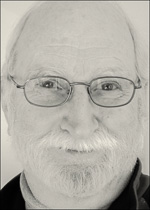Franz Daniel Pastorius and Transatlantic Culture
German Beginnings, Pennsylvania Conclusions | By John Weaver
Abstract
This study reconstructs the historical and cultural context of Pastorius’ early life in Germany, and traces the contours of his biography. It is based on his Pennsylvania correspondence, autobiographical writing, poetry and scholarship as well as documentary evidence and historical evaluation from a great variety of German sources (here presented in original English translation). Epigraphs from Pastorius’ writing and scholarship provide reflective commentary and highlight many of his intriguing epigrams and poems. A prologue describes Pastorius’ father Melchior Adam and his search for salvation in Hapsburg Europe. Chapter One introduces Pastorius as a scholar-poet, social critic and pragmatic immigrant, and portrays the Franconian and German culture of his youth, indicating historical reasons for his conversion to Lutheran Pietism in 1679 and his emigration in 1683.
Chapter Two describes Pastorius’ childhood and youth, noting the vitality of his community and family life, and his disciplined growth from childhood spontaneity to an identity anticipating adult responsibilities as a burgomaster’s son in the Lutheran imperial city of Windsheim. The chapter identifies tensions involving authoritarianism and latent resistance to authority especially in Pastorius’ Gymnasium schooling and in the complex relationship of father and son, and gives complementary views on upbringing from his Pennsylvania writings. Chapter Three traces his student career at Nürnberg and other German universities (1668-76) – studying philosophy, language and law, observing a wartime Reichstag (or Imperial Diet) in Regensburg, and attaining a doctorate in civil and canon law. This academic milieu in the baroque era reveals learned compulsions related to the tensions described in Chapter Two. The chapter notes his courtly delights and cultural attainments as well as their social costs, and examines Pastorius’ commentary, including commonplace entries and poetry on aesthetic pleasures, and satire and criticism epitomized in Gospel references to rich Dives and the beggar Lazarus. A detailed description of his mature poetry of flirtation and sensuality complements his fervent social criticism.
Chapter Four presents Pastorius’ adult experience of Europe and America, describing the start of his law career during two years of strife in Windsheim (1677-79), when his family and friends helped to suppress a popular insurrection against abuses of oligarchic rule. It examines the complicity and guilt that led him to reject the home and community he dearly loved, and to join the learned Pietists of Frankfurt am Main, and it describes the baroque tensions he continued to encounter as he practiced law in Frankfurt and the Palatinate and toured Europe (1679-83). His predictions of a European Armageddon (1683-84), reflecting these tensions, are explained on several levels, including the destructive potential of the era of the Thirty Years’ War and the 1688 Palatine devastation. The chapter analyzes Pastorius’ letters and reports from Pennsylvania, in which he piously urges humane reforms and pragmatically describes the economy, politics and society of the province, often focusing on the Lenni Lenape or Delaware tribe. It examines his opposition to black slavery and to the exploitation of Native Americans (and related criticism of European cultural imperialism in India) as well as his praise of material and ethical satisfactions in the New World. This context illumines his personal maturation in Pennsylvania, a diverse and evolving culture with secular influences of neoclassicism and the Enlightenment.
The study as a whole reflects Franconian and European culture through the prism of Pastorius’ Pennsylvania writings. Overall, his unique perspective provides a fresh critique of contemporaneous society, religion and politics.
About the Author

John Weaver (b. 1942) grew up in Lancaster County, Pennsylvania, and studied at Lafayette College (B.A. in English), California State University, San Jose (M.A. in English), and the University of California, Davis (Ph.D. in American Literature). A Davis teaching exchange provided a year in Mainz, Germany (1977-78), and that led to a career as an English and American Studies lecturer at Bonn University. Weaver chaired the foreign-language lecturers’ association (Lektorenverband) at Bonn, coordinated language courses in the English Department, and was elected to the Bonn University Personalrat (staff council), serving as academic staff representative over two decades. He acted modern and Shakespearean roles with the British Embassy Players (later the Bonn Players) and played a Village Elder in Peter Greenaway’s movie, "The Baby of Mâcon." He has traveled widely in Europe and the United States, experiencing on-the-road epiphanies, yet he was most alive in the classroom, engaging in discussion or, in lectures, with eager and inquiring young faces fixed upon him. He now walks the dog (Sally, a Welsh Terrier) and dabbles in amateur photography, often simultaneously (photos at google plus and flickr). Before starting graduate school in 1970, Weaver served as a U.S. Army officer (1964-66, mostly in Germany) and worked as an insurance claims adjuster and print journalist. He also taught at a Gymnasium in Norderstedt, Germany (1973-74). He retired in 2008 and lives with his German-born wife in Bamberg, Germany. They have two children and five grandchildren, also living in Germany.